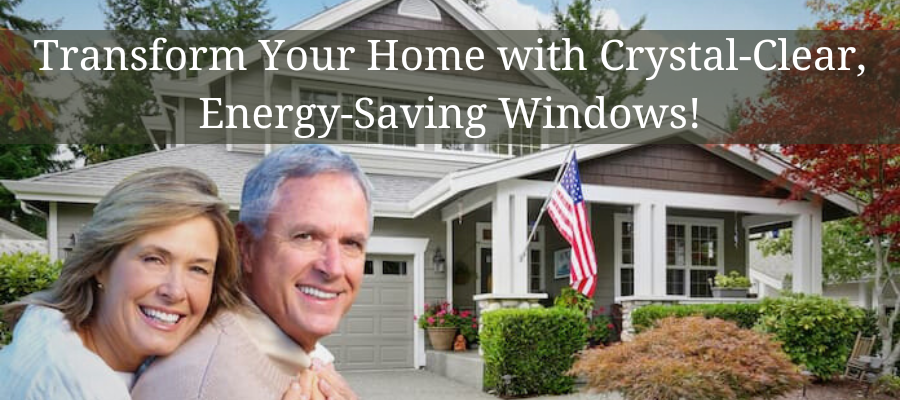When considering home improvements, one of the key decisions you’ll face is choosing the best material for replacement windows. This choice directly impacts not only the aesthetic appeal of your home but also its energy efficiency and maintenance requirements.
Various materials are available, each with its unique set of benefits and considerations. For instance, you might appreciate the natural beauty and insulation properties of wood, the durability and low maintenance of vinyl, or the strength and modern look of fiberglass.
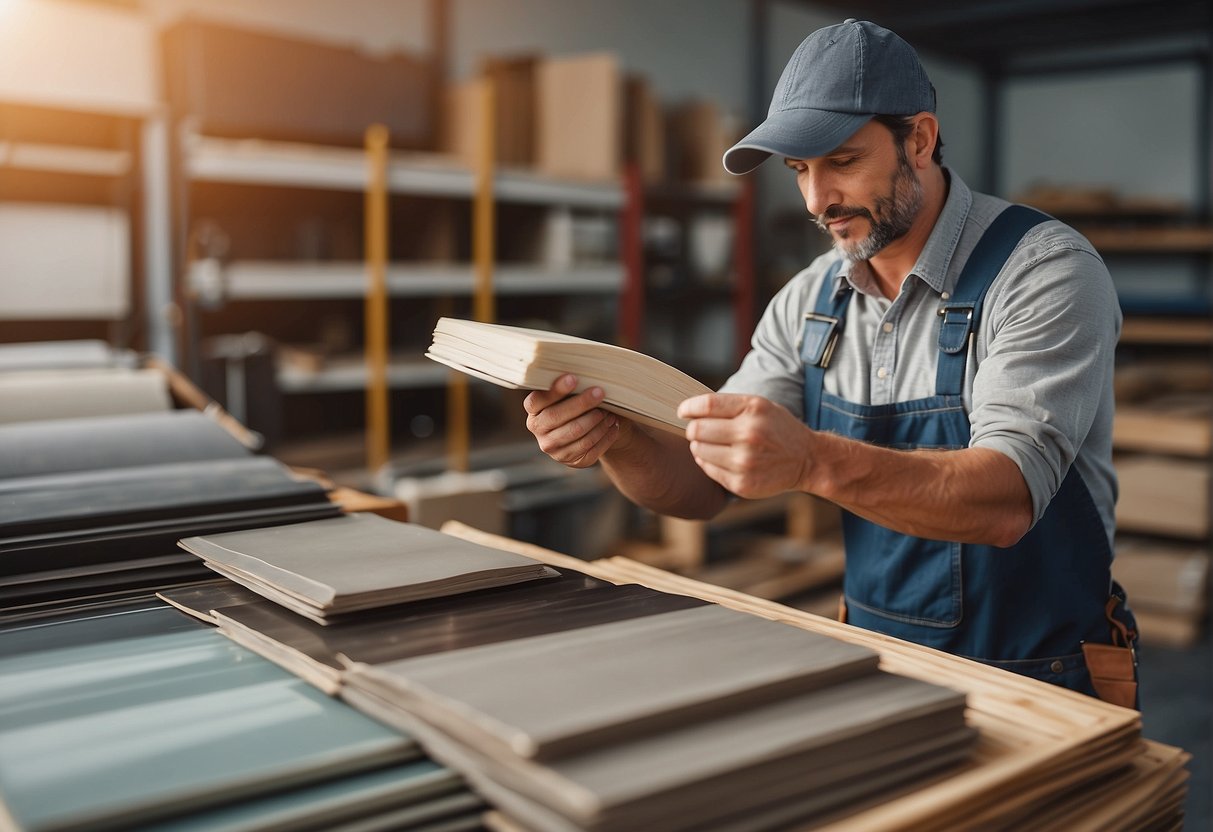
Selecting the right window material requires balancing factors such as cost, performance, and the architectural style of your home. Energy efficiency is a crucial aspect, with materials like vinyl and fiberglass often providing better insulation than traditional wood. Moreover, consider the ease of installation and the longevity of the material in your local climate. These practicalities can affect not only your immediate comfort but also the long-term value of your investment in your home.
Key Takeaways
- Selecting the right window material enhances both the look and efficiency of your home.
- Balancing cost, performance, and style is crucial when choosing window materials.
- Energy efficiency and ease of installation significantly impact your material choice.
Types of Window Materials
When considering replacement windows for your home, it’s essential to understand the different materials available and how they might suit your specific needs.
Vinyl Windows
Vinyl windows are a popular choice due to their durability and energy efficiency. They are often more cost-effective and require minimal maintenance, resisting moisture and not needing to be painted.
Wood Windows
Wood windows offer a classic and timeless aesthetic, with the natural grain providing a warm and inviting look. They can be painted or stained to complement your home’s decor but may require more upkeep to prevent weathering.
Fiberglass Windows
Fiberglass windows are robust and can resist warping and swelling. They offer excellent insulation properties, contributing to energy efficiency. While they can mimic the appearance of wood, they stand up to the elements better, making them a long-lasting choice.
Aluminum Windows
Aluminum windows are strong and lightweight, with a slim and sleek profile that allows for more glass and less frame. They are resistant to rust and corrosion but may not provide the same level of insulation as other materials.
Composite Windows
Composite windows combine materials like wood fibers and thermoplastic polymers for an eco-friendly solution. This innovative hybrid aims for a balance of energy efficiency and durability, with the added benefit of looking like wood while being more resistant to weathering.
Factors to Consider When Choosing Window Materials

When selecting materials for replacement windows, it’s crucial to consider a variety of factors that will impact not only the performance of your windows but also how they fit with your home’s needs.
Thermal Performance
Your windows play a significant role in regulating the temperature inside your home. Look for window materials that offer excellent insulation and reduce thermal transfer. For instance, wood frames are known for their natural insulating properties, but vinyl windows and fiberglass frames are also energy-efficient choices, as they can reduce heating and cooling costs.
Durability
The lifespan of your windows is largely dependent on the durability of the material. Aluminum frames are typically strong and resistant to the elements, while fiberglass is known for its longevity and ability to withstand extreme temperatures.
Maintenance
Consider how much time and effort you are willing to dedicate to window maintenance. Vinyl windows are low-maintenance and easy to clean, making them a hassle-free option. In contrast, wood windows might require periodic painting or staining to maintain their appearance and durability.
Cost
Budget is a major consideration in any home improvement project. Aluminum windows can be more affordable, but might not offer the best insulation. On the other hand, while wood windows can be more expensive upfront, they can add value to your home and might save you money in the long run through better energy efficiency.
Aesthetics
The look of your windows is just as important as their function. Wood can offer a classic, traditional appearance, whereas materials like vinyl and aluminum provide a more modern appeal. Color choices and finishes can also vary greatly between materials, so consider what will complement your home’s style.
Energy Efficiency and Insulation
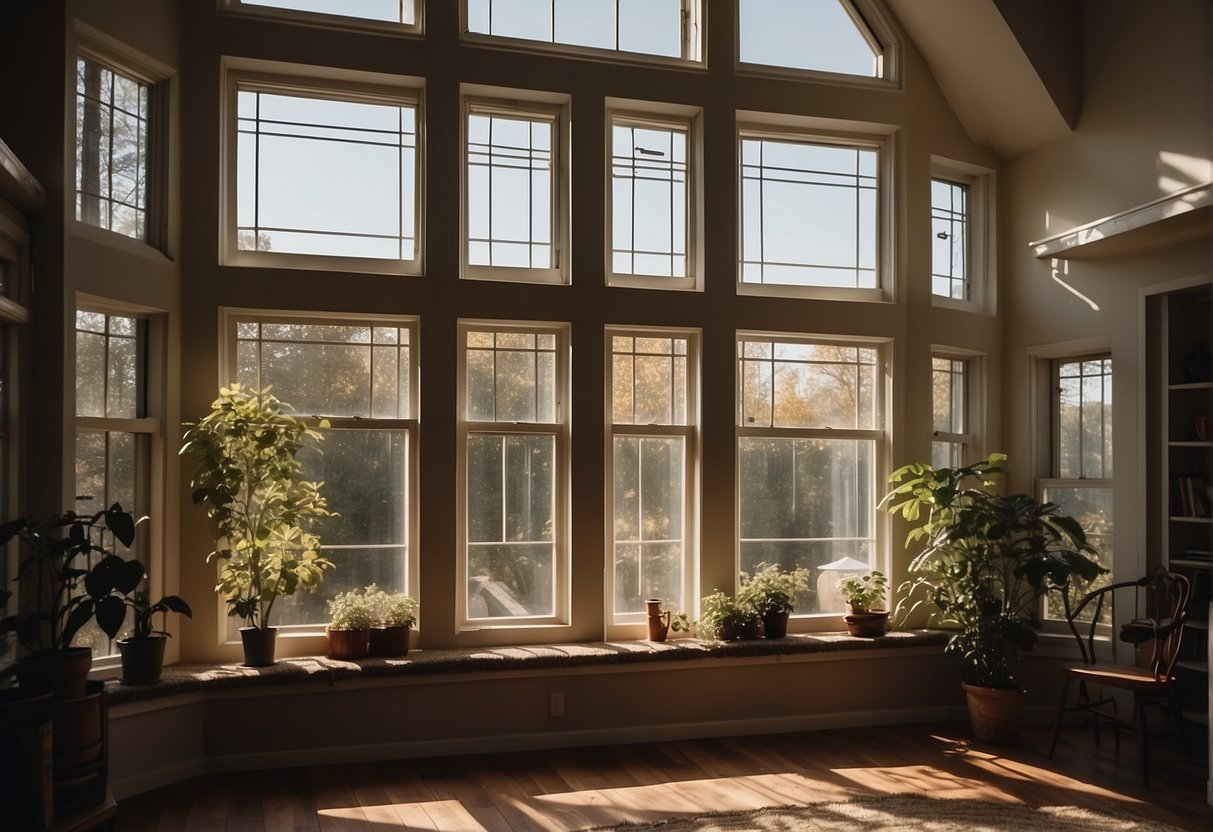
When considering replacement windows, energy efficiency is key. Your windows play a crucial role in maintaining your home’s overall energy consumption. Insulation is a primary factor in a window’s ability to retain heat during winter and keep your space cool in summer.
- Low-E Glass: Your first consideration might be windows with low-emissivity (Low-E) glass, which is treated with a microscopic, thin coating that reflects heat. This type of glass helps to keep heat inside during colder months and outside during warmer months. How To Choose The Most Energy-Efficient Windows.
- U-Factor: Pay attention to the U-Factor, which measures how well a window insulates. Specifically, you’re looking for a lower U-Factor because it means the window has better insulating properties.
| U-Factor | Insulation Quality |
|---|---|
| 0.20 – 0.30 | Excellent |
| 0.30 – 0.40 | Very Good |
| 0.40 – 0.55 | Good |
- Solar Heat Gain Coefficient (SHGC): Look for a lower SHGC rating to reduce the solar heat that gets through the windows, important in keeping your home cooler in hot climates. Guide to Energy-Efficient Windows.
Remember, insulation isn’t just about retaining heat; it’s about maintaining a consistent interior temperature with less strain on your heating and cooling systems. By choosing energy-efficient windows, you are investing in both the comfort of your home and the longevity of your energy resources.
Installation and Replacement
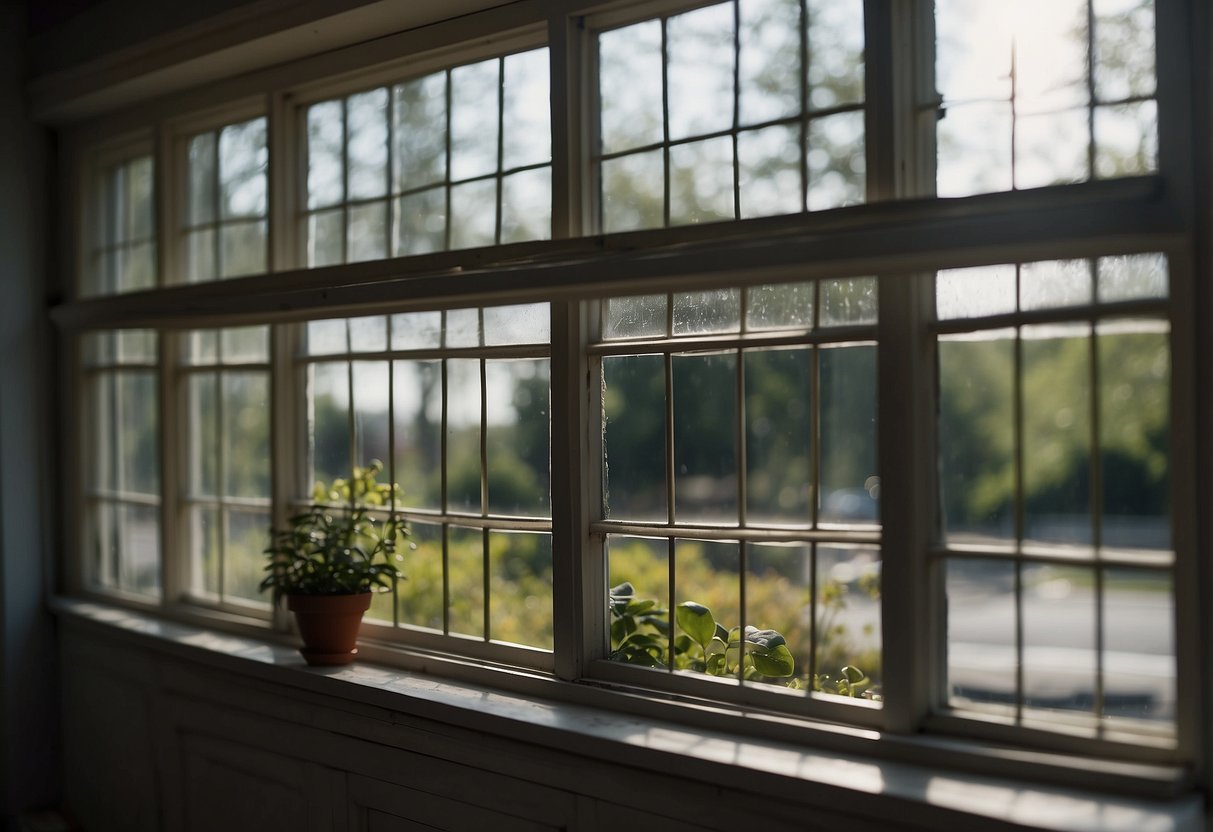
When you’re ready to upgrade your home with new windows, understanding the installation and replacement process is crucial to ensure a smooth transition from your old windows to the new ones.
- Choose the Right Contractor: Select a reputable contractor who specializes in window installation. It’s important to find someone with positive reviews and the right credentials.
- Measurement Is Key: Accuracy in measuring your window spaces is vital. Precise measurements ensure that the replacement windows will fit perfectly, preventing issues like drafts.
Pre-Installation Preparation
- Clear the area around your windows inside and out to give installers easy access.
- Cover any furniture and flooring to protect them from dust and debris.
During installation:
- Installers will remove the old windows and prepare the opening for the new ones.
- They will then place and secure the new windows, ensuring that they are level and sealed properly.
After installation:
- The team should clean up any mess resulting from the replacement.
- They may also provide a walk-through to demonstrate how to properly operate your new windows.
Remember, good communication with your contractor can make the difference in timely and efficient installation. Keep in touch with them about any concerns you have throughout the process. For more details about the installation specifics, you may refer to credible sources like Consumer Reports or guides from established home renovation experts such as This Old House.
Frequently Asked Questions
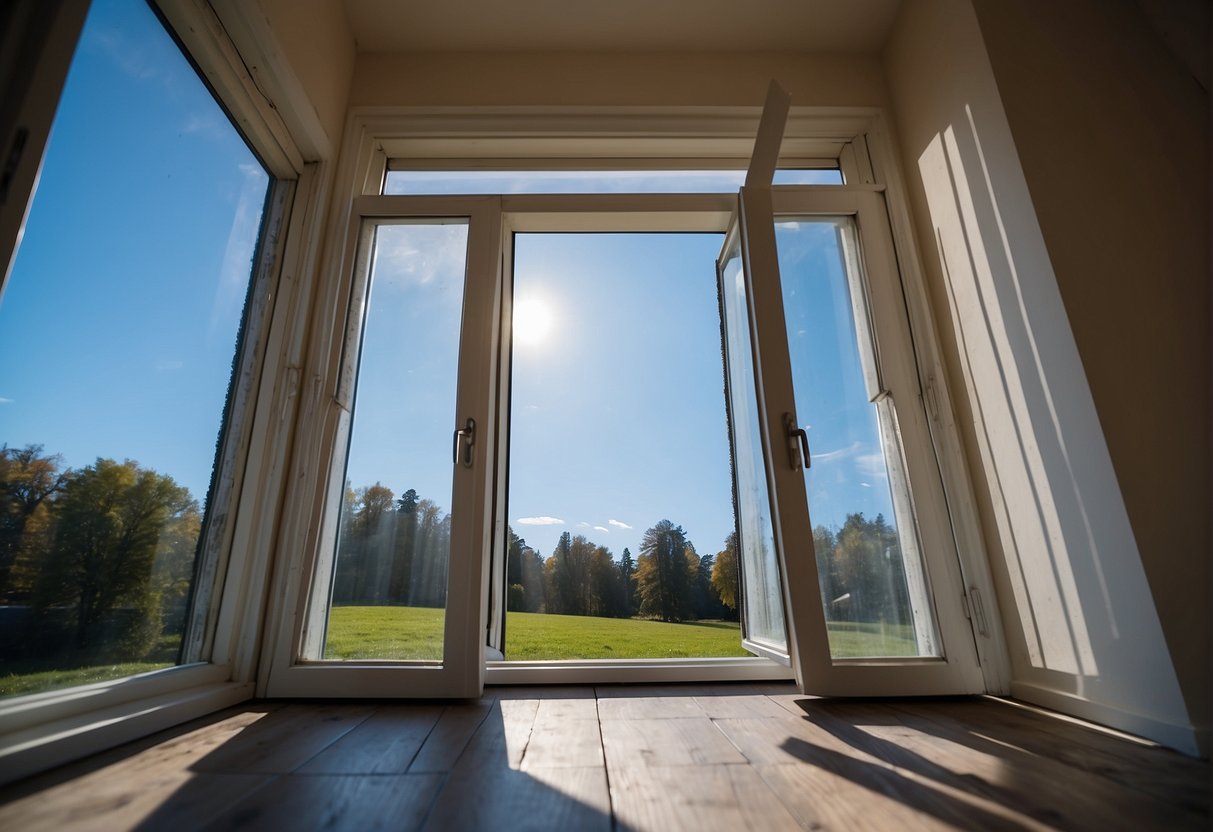
When considering replacement windows, you’re likely concerned about energy efficiency, cost, and maintaining the aesthetic of your home. Here are the answers to some commonly asked questions to guide you in making the best choice for your window material.
Which window replacement material offers the highest energy efficiency?
Double-pane glass has become the standard for energy efficiency in replacement windows, as it typically includes argon gas filling to provide better insulation. You can learn more about the insulating properties of double-pane windows.
How do different frame materials impact the cost of replacement windows?
The material of the window frame heavily influences the cost of replacement windows. For instance, vinyl frames tend to be more budget-friendly, whereas wood and fiberglass frames could be more expensive due to their material costs and installation requirements.
What are the advantages of using vinyl for replacement windows?
Vinyl windows offer several benefits, including lower maintenance requirements and resistance to moisture and decay, which makes them a popular and cost-effective option for many homeowners.
Can fiberglass windows be a good option for homes in variable climates?
Fiberglass windows are durable and can withstand extreme temperature fluctuations, which makes them an excellent option for homes in variable climates. They also have minimal expansion and contraction, enhancing their lifespan and energy efficiency.
What type of windows should I consider for an older home to maintain its character?
Wood replacement windows are often recommended for older homes as they can be customized to maintain the home’s traditional and historical character. Staining or painting wood frames to match your home’s decor is an option to consider.
Between vinyl and composite windows, which type offers better durability and maintenance?
Vinyl windows typically offer better durability and require less maintenance compared to composite windows. They do not need to be painted, are resistant to rot, and are easy to clean, making them a practical choice for longevity and ease of care.

